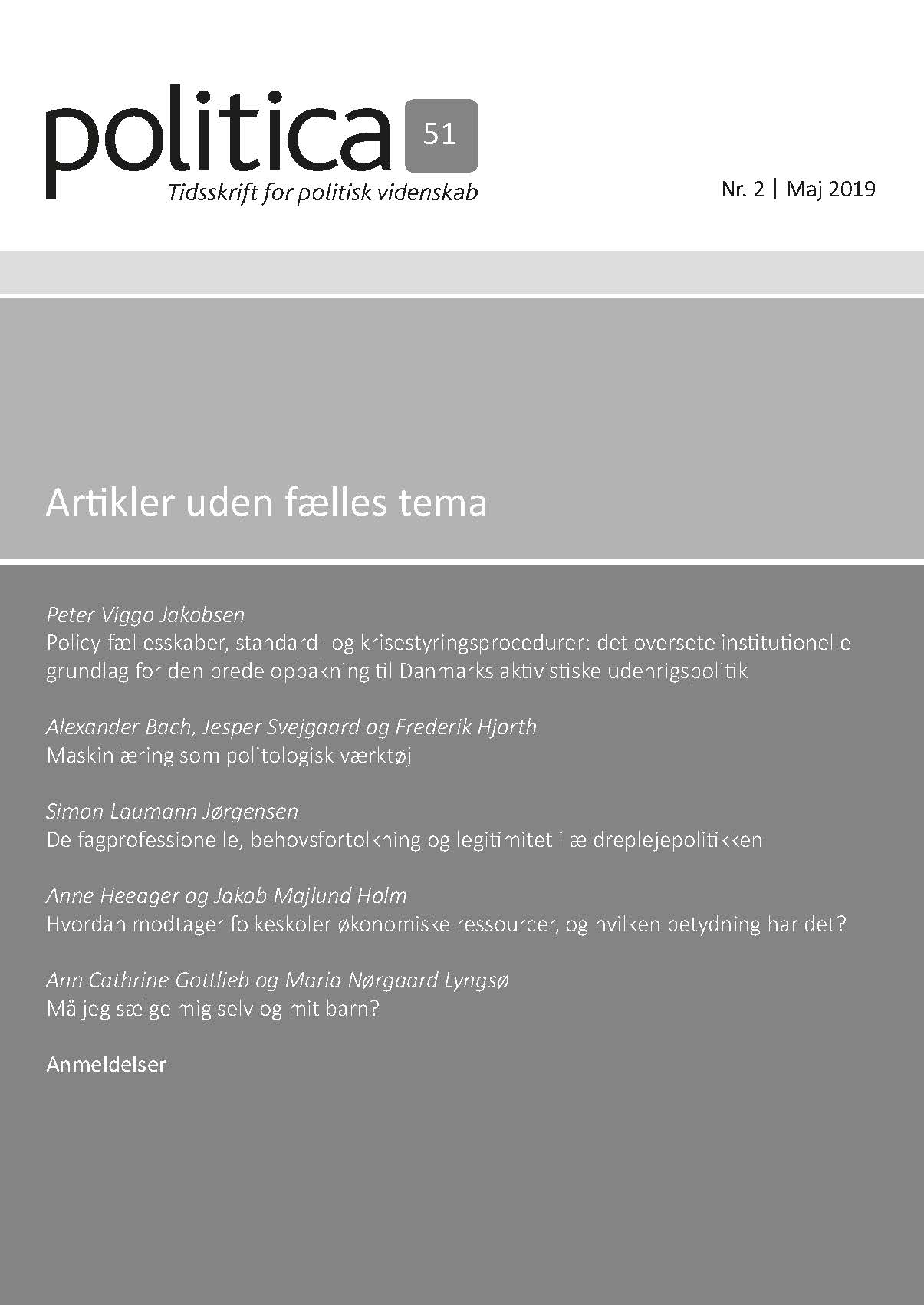Policy communities, standard- and crisis management procedures: the overlooked institutional foundation for the broad support for Denmark’s activist foreign policy
DOI:
https://doi.org/10.7146/politica.v51i2.131150Resumé
This article identifies the institutional mechanisms that have created and sustained the surprisingly high level of political support that has characterized the two flagships of the activist Danish foreign policy for nearly 60 years: international military operations and development assistance. The high support results from two policy communities involving the key actors and using standard- and crisis-management procedures in the form of white papers, commissions, multi-year budget agreements, consultation, political agreements and strategies to build compromises within the two policy-areas. The high level of political support is underpinned by public disinterest in the two areas and the need to establish an international reputation as a reliable partner. The key to understanding the future of Denmark’s activist foreign policy consequently does not lie abroad or in opinion polls as it is generally assumed. It lies in the Danish parliament and the ministries involved in the two policy-areas.
Publiceret
Citation/Eksport
Nummer
Sektion
Licens
LicensOphavsretten tilhører Politica. Materialet må ikke bruges eller distribueres i kommercielt øjemed.





